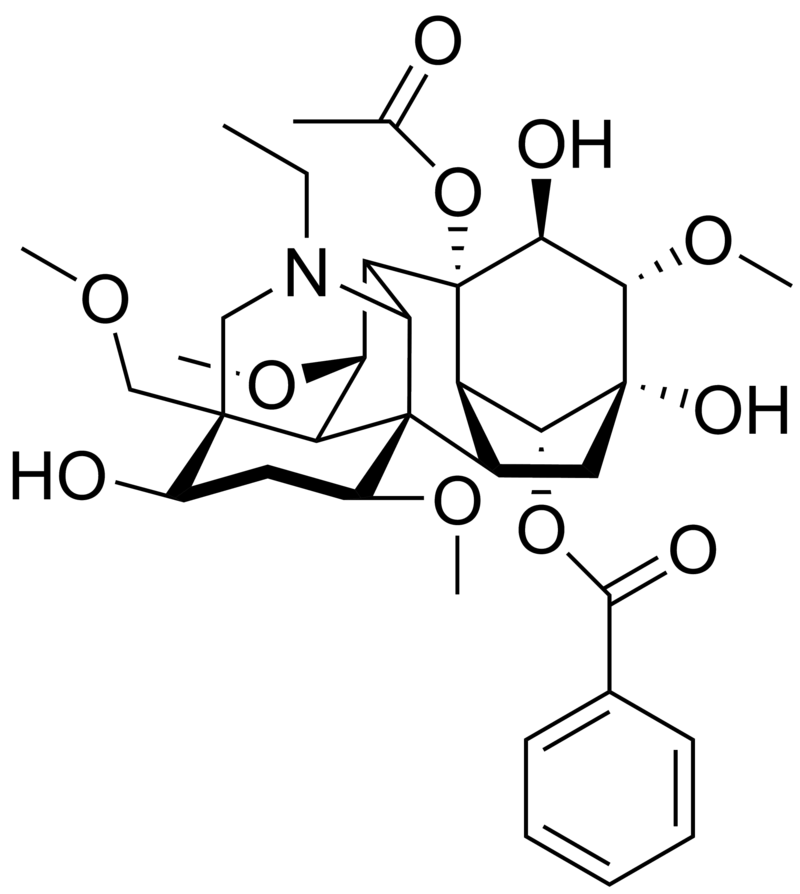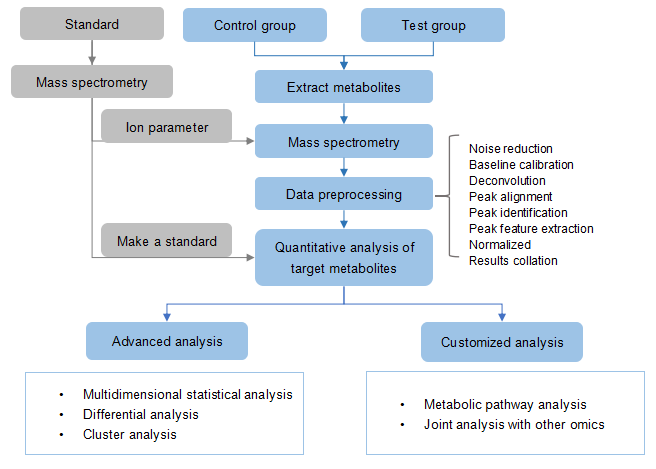Targeted metabolomics services target specific metabolites and pathways of interest, which can accurately monitor dynamic metabolic processes, reveal related metabolic mechanisms and verify potential metabolic biomarkers, so as to guide your research with reliable and accurate measurement results. Based on the most advanced separation and analysis platform, v-innovate Technologies provides targeted metabolomics services. Our experienced technicians continue to improve the detection system and optimize methods to provide the best service to meet customer needs.
Aconitine is a diester alkaloid, a chemical contained in the commonly used Chinese herb aconitine. Aconitine has analgesic effects and is used clinically to relieve cancer pain, especially in the digestive system. When applied topically, it paralyzes the surrounding nerve endings, producing local anesthetic and analgesic effects. It also has anti-inflammatory effects. Aconitine is extremely toxic, excites and paralyzes sensory and central nerves, excites the heart and vagus nerve, and directly intoxicates cardiac muscle cells. It also has a sweating effect.
The molecular formula is C34H47NO11 and the CAS number is 302-27-2.
The MS-based technique allows qualitative and quantitative analysis of aconitine.
 Molecular structure of aconitine
Molecular structure of aconitine
Targeted metabolomics is a study that identifies and quantitatively analyzes known metabolites in a sample. Its advantages are high specificity and accuracy. Therefore, this method has been widely used to analyze and compare multiple target metabolites in different physiological states.

| Sample demand |
| Fresh Plant > 1 g / sample, animal tissue 200 mg / sample Cells or bacteria > 107, supernatant > 2 ml Animal body fluid samples > 200 µl Lyophilized samples > 0.5 g |
| Sample mixed and repeat |
| In order to ensure the accuracy of the samples and reduce systematic errors during sampling, it is necessary to select more than 3 materials with the same condition for each sample. ※ The same condition refers to the same period, basically the same phenotype, and the same part. It is recommended that prepare more than 6 biological replicates. |
| Storage and transportation |
| Quick-frozen preservation with liquid nitrogen can minimize the leakage time of plant samples at room temperature. Dry ice transportation (about 3~4kg dry ice is consumed every day, please use sufficient dry ice for transportation). * For varieties with special requirements or rare varieties, please contact our staff for more information. |
A standard experiment and analysis process takes about 1-4 weeks.
